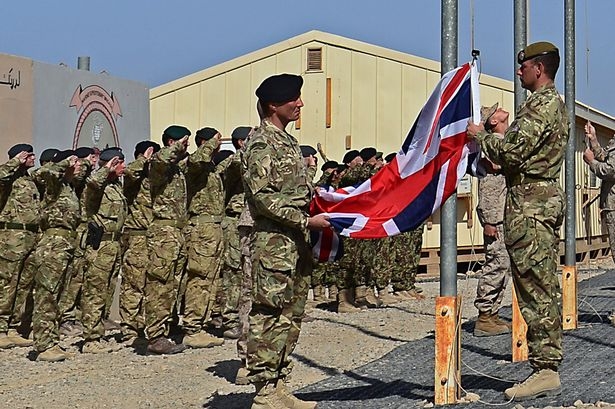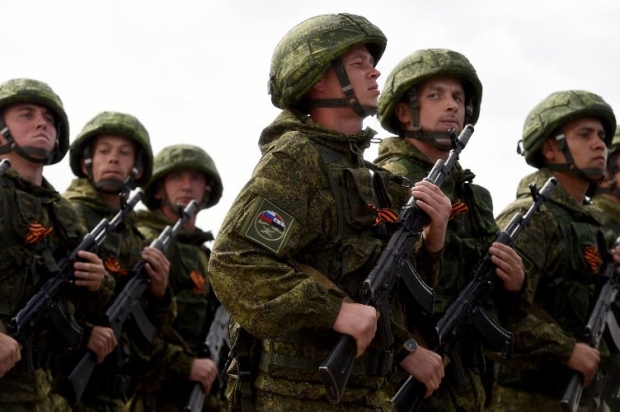Syria and the West's last-ditch battle to halt the rise of China
The West has built up its unparalleled armoury for one reason only - to protect its dominant world position. Syria is most likely where it will be used

The colonial, imperialist nature of postwar capitalism has, to some extent, been disguised by the formal political independence of most of the formerly colonised world. With an unambiguous and unrivalled lead in technological capacity, the Western nations have not required direct colonisation in order to guarantee essentially "captive" markets for their goods and capital.
The former colonies have largely been dependent on products, finance and technology from the imperial world without the need for formal political control - and this dependence has been backed up with economic blackmail through international financial institutions such as the IMF and World Bank where possible, and direct military force against resistant nations where necessary.
More military force
Such dependence, however, has been decisively eroded since the beginning of the new millennium. The rise of China, in particular, has completely destroyed the West's monopoly on finance and market access for the global South: African, Asian and Latin American countries no longer have to rely on US markets for their goods or on World Bank loans for their infrastructure development.
China is now an alternative provider of all these, and generally on far superior terms of trade than those offered by the West. In times of continued economic stagnation, however, this loss of their (neo) colonies is entirely unacceptable to the Western capitalist nations, and threatens the entire carefully crafted system of global extortion on which their own prosperity is based.
Increasingly unable to rely on economic coercion alone to keep countries within its 'sphere of influence', then, the West has been turning more and more to military force
Increasingly unable to rely on economic coercion alone to keep countries within its "sphere of influence", then, the West has been turning more and more to military force.
Indeed, the US, UK and France have been permanently at war since the eve of the new millennium - starting with Yugoslavia, through Afghanistan, Iraq, Libya, Mali, Syria and Yemen (to say nothing of proxy wars such as that in the Congo, or the "drone wars" waged in Pakistan, Somalia and elsewhere).
In each case, the aim has been the same - to thwart the possibility of independent development. It is entirely indicative of this new era of decreasing economic power that several of these wars were waged against states whose leaders were once in the pocket of the US (Iraq and Afghanistan) or who they had hoped to buy off (Libya and Syria).
 British soldiers lower the flag at Camp Bastion in Afghanistan (AFP)
British soldiers lower the flag at Camp Bastion in Afghanistan (AFP)
Thus, where it was once, at least in part, the result of economic superiority, the continued supremacy of the West in international affairs is increasingly reliant on military force alone. And even this military superiority is diminishing daily.
Deteriorating global power
Predictions of the length of time left before the Chinese economy overtakes the US economy continue to shrink. In 2016, China's share of the world economy had grown to 15 percent, compared to the USA's 25 percent. But with a growth rate over three times that of the USA, the difference is expected to decline rapidly; at this rate, the Chinese economy is on course to overtake that of the US by 2026.
Even if Putin were prepared to ditch Iran, or even China, for the right price (such as lifting sanctions, or recognising Russian sovereignty over Crimea), there is no way Congress would allow Trump to pay such a price
In fact, some scholars even argue that once adjustments are made for purchasing power parity and differential prices, the Chinese economy is already larger than that of the US. Furthermore, Chinese manufacturing output has been higher than that of the US for over a decade, and exports are one third higher, whilst China produces double the number of graduates annually than the US.
Such developments, however, are not of economic significance only: for it is only a matter of time before economic superiority is converted into military superiority. And this gives the US and its hangers-on an ever-diminishing window of opportunity in which to actually use their military superiority in order to preserve their deteriorating global power.
Regime change spoiler
Clearly the strategy hitherto has been to avoid direct war with China and its key ally Russia, and instead to focus on "taking out" their real or potential allies amongst states less able to defend themselves. But Russia's role as a spoiler in the regime change operation in Syria has demonstrated to the US that this may no longer be possible.
This has led to a split within the US ruling class on the issue of how to deal with Russia, with one side seeking to purchase Russian acquiescence to wars against Iran and China (advocated by the faction supporting Trump) and the other aiming to simply "regime change" Russia itself (advocated by the Hillary Clinton faction).
It is easy to see how the Syrian war could lead to a major escalation: indeed, it is difficult to see how it could not
At the heart of both is the attempt to break the alliance between Russia and China, in the case of Clinton by pulling China away from Russia, and for Trump, pulling Russia away from China.
The point is, however, that neither strategy is likely to work, as clearly the breaking of the China-Russia axis is aimed at weakening both of them. Furthermore, even if Putin were prepared to ditch Iran, or even China, for the right price (such as lifting sanctions, or recognising Russian sovereignty over Crimea), there is no way Congress would allow Trump to pay such a price.
 Russian soldiers march during a rehearsal of the Victory Day Parade at the Russian Hmeimim military base in Latakia province, in the northwest of Syria on 4 May, 2016 (AFP)
Russian soldiers march during a rehearsal of the Victory Day Parade at the Russian Hmeimim military base in Latakia province, in the northwest of Syria on 4 May, 2016 (AFP)
Trump would dearly love to offer to lift sanctions - but this is not within his gift; instead he can merely offer sops such as withdrawal from Syria, or pre-warning of missile attacks on Russia's allies - hardly enough to lure Russia into the suicidal severing of alliances with its most important allies.
The unthinkable war
This conundrum puts the unthinkable squarely on the agenda: direct war with Russia. The last month has shown clearly how, and how rapidly, this is developing. Britain's carefully calibrated efforts to create a worldwide diplomatic break with Russia can now clearly be seen as a prelude to what was almost certainly planned to be - and may yet become - an all-out war with Russia on the Syrian battlefield.
This scenario appears to have been averted for now by Russia's refusal to countenance it, and the West's fear of launching such an operation in the face of direct Russian threats, but such incidents are only likely to increase. It is only a matter of time before Russia will be put to the test.
Britain's carefully calibrated efforts to create a worldwide diplomatic break with Russia can now clearly be seen as a prelude to what was almost certainly planned to be an all-out war with Russia on the Syrian battlefield
It is easy to see how the Syrian war could lead to a major escalation: indeed, it is difficult to see how it could not. In Washington, there is much talk of the need to "confront" Iran in Syria, and recent Israeli attacks on Iranian positions in Syria indicate that they are itching to get this confrontation underway, with or without prior US approval.
Once underway, however, an Iranian-Israeli conflict could very easily draw in Russia and the US. Russia could hardly be expected to stand back whilst Israel reversed all its hard-fought gains of the past two and a half years - whilst demonstrating the feebleness of Russian "protection" - and would likely retaliate, or at the very least (and more likely) provide its allies with the means to do so.
Indeed, Putin reportedly warned Netanyahu last week that he can no longer expect to attack Syria with impunity. And once Israelis start getting killed by Russian hardware, it is hard to see how the US could not get involved.
READ MORE ►
This is just one possible scenario for the kind of escalation that would lead to war with Russia. Economic war with China is already underway, and US warships are already readying themselves to cut off China's supply lines in the South China Sea.
Each specific provocation and escalation may or may not lead to a direct showdown with one or both of these powers. What is clear, however, is that this is the direction in which Western imperialism is clearly headed.
It has built up its unparalleled armoury for one reason only - to protect its dominant world position. The time is soon coming when it will have to use it - and use it against a power that can actually fight back - whilst it still has a chance of winning.
- Dan Glazebrook is a political writer and editor of stopstarvingyemen.org. He is author of Divide and Ruin: The West's Imperial Strategy in an Age of Crisis and blogs at danglazebrook.com.


No comments:
Post a Comment